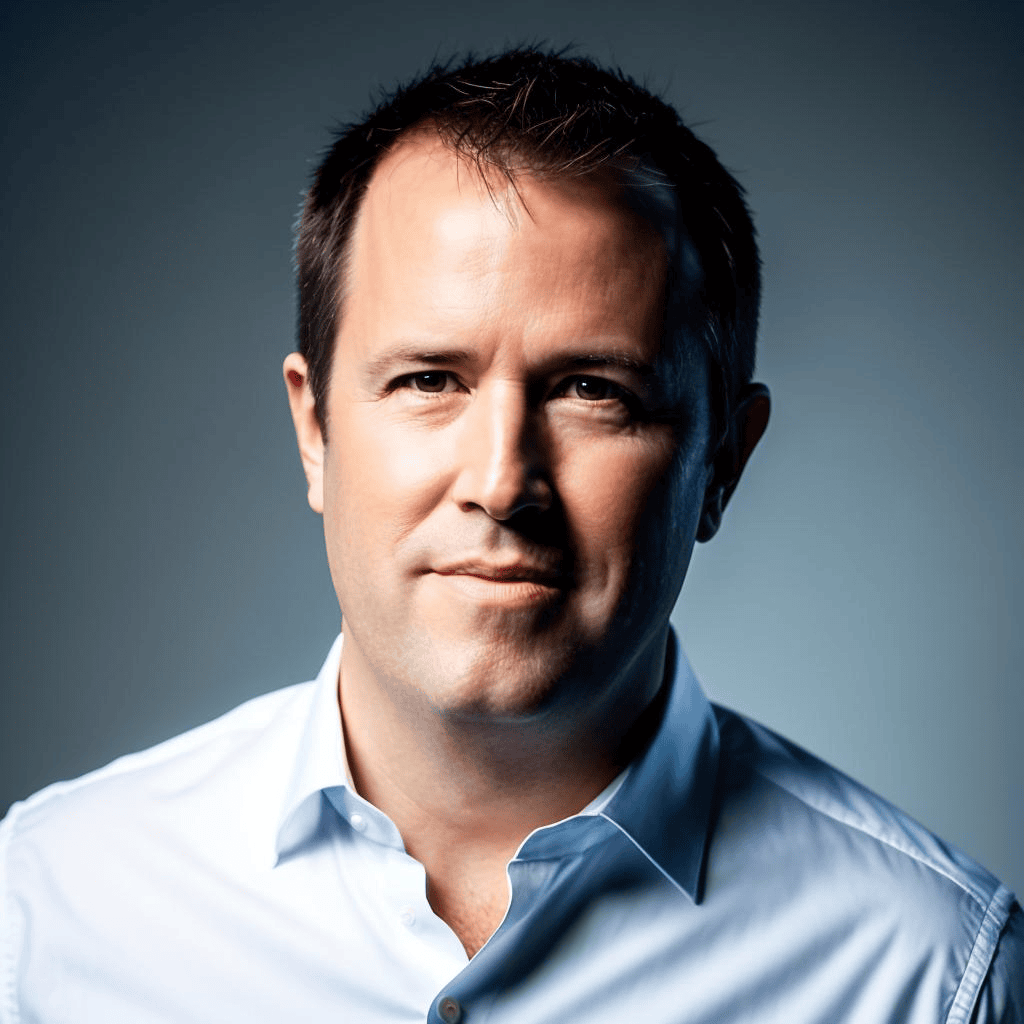Many high-performing leaders step away from full-time roles only to realize they’re not ready to slow down completely. After all, you can only golf or fish so much, right?
Encore careers offer a powerful way to channel your continued drive into meaningful pursuits, letting you tackle new challenges, mentor others, or build something impactful. This article guides you in discovering your true passions and outlines practical steps to successfully embark on your fulfilling encore career.
Key Takeaways
- Encore careers focus on meaningful work after traditional careers end.
- Identifying your passions and skills is crucial for a successful transition.
- Building a supportive network can ease the challenges of changing careers.
- Mentorship plays a key role in navigating encore careers.
- Financial planning is essential for a smooth transition into a new career.
Understanding Encore Careers

Definition of Encore Careers
So, what exactly is an encore career? It’s not just about finding something to do after you retire from your main gig. It’s about intentionally choosing a new path, often later in life, that brings both personal fulfillment and a chance to make a real difference. Think of it as your second act, but this time, it’s driven by purpose, not just a paycheck. It’s about using all those skills and experiences you’ve gathered over the years to do something meaningful, whether that’s helping your community, pursuing a passion, or even starting a business that aligns with your values.
The Importance of Meaningful Work
Why are encore careers becoming so popular? Well, people are living longer, healthier lives, and they’re not ready to just sit back and do nothing after 50 or 60. They want to stay active, engaged, and contribute to something bigger than themselves.
And honestly, who can blame them? Meaningful work is good for the soul. It gives you a sense of purpose, keeps your mind sharp, and connects you with others who share your passions. It’s about finding that sweet spot where your skills, interests, and values intersect with a need in the world.
It’s not just about filling your days; it’s about filling them with something that matters. It’s about leaving a legacy and knowing that you made a positive impact on the world.
How Encore Careers Differ from Traditional Careers
Okay, so how is an encore career different from a regular, traditional career? For starters, it’s usually driven by different motivations. Traditional careers are often focused on climbing the corporate ladder, earning a certain salary, or achieving a specific title.
Encore careers, on the other hand, are more about personal satisfaction, social impact, and using your skills to make a difference. It’s less about the money and more about the meaning.
Plus, encore careers often offer more flexibility and control over your time, allowing you to design a work life that fits your lifestyle and priorities. It’s a chance to rewrite the rules and create a career that truly reflects who you are and what you care about.
Identifying Your Passion and Purpose

Reflecting on Past Experiences
Okay, let’s get real. Figuring out what you really want to do isn’t some touchy-feely exercise. It’s about digging into your past and pulling out the gold. What did you love as a kid? What projects made you lose track of time? These aren’t just random memories; they’re clues.
Think about the times you felt truly alive and engaged. What were you doing? Who were you with? What problems were you solving?
Don’t dismiss anything as silly or irrelevant. Sometimes, the most unexpected experiences hold the key to your future. It’s like sifting through old photos – you might stumble upon something that sparks a whole new idea. It’s about connecting the dots between your past and your potential future.
Consider what you’ve enjoyed in previous roles, even if the roles themselves weren’t a perfect fit. Maybe you hated being a manager, but loved mentoring your team. That’s a clue! Maybe you loathed sales, but thrived on building relationships with clients. Another clue! These are the threads you’ll weave into your encore career.
Assessing Skills and Interests
Time to take stock. What are you actually good at? And, more importantly, what do you enjoy doing?
There’s a difference, and it’s a crucial one. You might be a whiz at spreadsheets, but if they make you want to scream, that’s not a skill to build a career around. Think about the things people compliment you on. What do friends and family ask for your help with? What problems do you naturally gravitate towards solving? These are your strengths.
Now, let’s talk interests. What do you read about in your free time? What podcasts do you listen to? What hobbies make you tick? These are the areas where you’re naturally curious and engaged. The sweet spot is where your skills and interests overlap. That’s where you’ll find the work that feels both fulfilling and effortless.
It’s not always easy to see your own strengths, so ask for feedback. Talk to people who know you well and ask them what they think you’re good at. You might be surprised by what they say. And don’t be afraid to experiment.
Try new things, take classes, volunteer for projects that pique your interest. You never know what hidden talents you might uncover. Remember, this isn’t about finding the perfect fit right away. It’s about exploring, learning, and refining your focus over time. It’s about financial stability as you transition.
Finding Your Zone of Genius
Okay, this is where things get really interesting. Forget about being good at something. Forget about even being great. What are you uniquely good at? What are you so good at that it feels effortless? What are you doing when time seems to disappear?
That’s your zone of genius. It’s the intersection of your passion, your talent, and your purpose. It’s the work you were born to do.
And here’s the kicker: when you’re working in your zone of genius, you’re not just more productive, you’re also happier and more fulfilled.
It’s like unlocking a secret level in a video game. Everything just flows.
So, how do you find your zone of genius? Start by paying attention to what energizes you. What tasks make you feel alive and engaged? What problems do you love solving? What kind of work makes you feel like you’re making a real difference? Then, think about what you’re uniquely good at. What skills and talents do you have that set you apart from others? What do people come to you for? What problems can you solve that others can’t?
The key is to find the intersection of these two things. It’s the work that you love to do and that you’re uniquely qualified to do. And when you find it, hold on tight. It’s the key to a fulfilling and impactful encore career. It’s about finding that calling and making it your own.
Navigating the Transition to an Encore Career
Steps to Make the Shift
Okay, so you’re thinking about a second career after retirement? Awesome! First, figure out what you actually want to do. Don’t just jump into something because it seems easy. Think about what makes you tick. What are you good at? What do you enjoy? Maybe take a skills assessment. It’s like a career aptitude test, but for grown-ups.
Then, update your resume. Seriously. Highlight those transferable skills. That project management experience from your old job? Gold. That time you volunteered to run the local bake sale? Also gold. Tailor your resume to the job after retirement you want, not the job you had.
Finally, start networking. Tell everyone you know what you’re up to. You’d be surprised who knows who. Go to industry events, join online groups, and reconnect with old colleagues. You never know where your next opportunity will come from.
Overcoming Common Challenges
Let’s be real, a career change at 50 or later isn’t always a walk in the park. You might face ageism. People might underestimate you. You might doubt yourself. It’s normal. Don’t let it stop you.
One big hurdle is often financial. Can you afford to take a pay cut? Do you need to downsize your lifestyle? Make a budget. Figure out your retirement benefits and how they’ll factor in. Explore funding opportunities if you’re starting a business after 50. Knowledge is power, so get informed.
Another challenge? Learning new skills. Technology changes fast. Be willing to learn. Take online courses, attend workshops, and ask for help. Embrace being a beginner again. It’s humbling, but also exciting.
Creating a Supportive Network
Going it alone is tough. Find your tribe. Connect with people who are doing what you want to do. Join professional organizations, attend industry events, and find a mentor. A mentor can provide advice, share experiences, and help you navigate challenges.
Don’t be afraid to ask for help. People are generally willing to share their knowledge and experience. Offer to help others in return. Building a supportive network is a two-way street.
Remember, meaningful work after retirement is about more than just making money. It’s about purpose, passion, and connection. Surround yourself with people who support your vision and believe in your potential. Consider consulting after retirement to stay connected and share your wisdom.
The Role of Mentorship in Encore Careers
Finding the Right Mentor
Finding a mentor for your encore career isn’t just about picking someone successful; it’s about finding someone who gets you and where you want to go. Think about what skills or knowledge you need to gain. Do you need someone with experience in executive networking organizations? Or maybe someone who has successfully made a similar transition?
Look for people who are willing to share their experiences, both good and bad. Don’t be afraid to reach out to people in your network or attend industry events to make new connections.
Building Meaningful Connections
It’s not enough to just find a mentor; you need to build a real connection. This means being proactive, respectful of their time, and genuinely interested in their advice. Come prepared to meetings with specific questions and be ready to listen. Remember, mentorship is a two-way street. Offer your own skills and insights where appropriate. A strong mentor-mentee relationship is built on mutual respect and trust.
Mentorship can be a game-changer, but it’s not a magic bullet. It requires effort, commitment, and a willingness to be open and honest. It’s about building a relationship that supports your growth and helps you navigate the challenges of your encore career.
Leveraging Experience for Growth
Mentors can offer guidance, but it’s up to you to take action. Use their experience to inform your decisions, but don’t be afraid to forge your own path. Mentors can also help you identify blind spots and develop new skills. Consider volunteering in retirement to gain experience. Be open to feedback, even when it’s tough to hear, and use it to grow and improve. The goal is to learn from their successes and failures so you can create your own success story.
Financial Considerations for Encore Careers
Budgeting for Transition
Okay, let’s be real. Jumping into an encore career isn’t free. You’ve got to look at your current expenses and future income. What can you cut back on? What must you keep? Knowing your numbers is the first step to financial freedom in this new chapter. Maybe it’s time to ditch that fancy coffee habit or finally cancel that gym membership you never use. Every little bit counts.
Understanding Retirement Benefits
So, you’ve been diligently saving for retirement, right? Now’s the time to figure out how those benefits play into your encore career plans. Will you delay taking Social Security to maximize your benefits later? Or will you tap into your 401(k) or IRA? It’s a puzzle, but a fun one.
It’s important to understand the tax implications of any withdrawals you make. Talking to a financial advisor can save you a lot of headaches down the road. Don’t be afraid to ask for help; it’s a sign of strength, not weakness.
Exploring Funding Opportunities
Think outside the box! Your encore career might need some seed money. Are there grants available for social enterprises or non-profits in your field? Could you take on some fractional executive roles to build up capital? What about board membership opportunities that offer both income and valuable experience? Don’t rule out small business loans or even crowdfunding. Get creative and see what’s out there. The possibilities are endless if you’re willing to look.
Success Stories in Encore Careers

Inspiring Examples of Transition
It’s easy to get caught up in the theory of encore careers, but let’s talk about real people who’ve made the leap.
Take, for instance, Maria, a former corporate lawyer who traded her high-powered career for teaching underprivileged kids. Or David, an ex-engineer who now runs a non-profit focused on sustainable energy solutions.
These aren’t just career changes; they’re transformations fueled by a desire to contribute something meaningful. It’s about finding that sweet spot where your skills meet your passion and the world’s needs. It’s about intentional living.
Lessons Learned from Real-Life Experiences
What do these success stories have in common? Resilience. The path isn’t always smooth.
There are financial considerations, learning curves, and moments of doubt. But those who thrive in their encore careers share a willingness to adapt, learn, and persevere.
They also emphasize the importance of networking and seeking mentorship. It’s about building a community around your new purpose and drawing strength from shared experiences. It’s about understanding that failure isn’t final; it’s feedback.
Impact on Communities and Society
Encore careers aren’t just feel-good stories; they have a tangible impact on communities and society. Seniors pursuing encore careers play a critical role in fostering social change.
Think about the retired teacher who starts a literacy program, or the former business executive who mentors young entrepreneurs. These individuals bring a wealth of experience, skills, and passion to address pressing social issues. They’re not just filling gaps; they’re creating ripples of positive change. They’re proving that experience is an asset, and that age is no barrier to making a difference.
The beauty of encore careers lies not just in personal fulfillment, but in the collective benefit they bring. It’s about experienced individuals channeling their talents and energy into solving community challenges and fostering social change. It’s about creating a more engaged, vibrant, and equitable society for all.
The Future of Work and Encore Careers
Trends Shaping Encore Careers
The way we work is changing, and that’s creating some cool opportunities for encore careers. Think about it: more remote work, flexible schedules, and a bigger focus on skills-based hiring. These trends? They’re practically made for people looking to transition into something new after their first career. It’s not just about finding a job; it’s about shaping a role that fits your life and goals.
The Growing Demand for Experienced Workers
Here’s a secret weapon for encore career seekers: experience. Companies are starting to realize that seasoned workers bring a ton to the table. We’re talking about problem-solving skills, leadership experience, and a work ethic that’s been honed over years. This demand for experienced workers is only going to grow, especially as baby boomers retire and the skills gap widens. It’s a chance to show what you’ve got and make a real difference.
How Technology is Changing the Landscape
Technology is a double-edged sword, sure, but for encore careers, it’s mostly opportunity. Online learning platforms make it easier than ever to pick up new skills. Digital tools can help you start a business or offer consulting services from anywhere. And let’s not forget the power of networking online. It’s all about staying curious and being willing to learn.
The future of work isn’t about age; it’s about adaptability and passion. If you’re ready to bring your experience and enthusiasm to the table, there’s a place for you in the encore career landscape.
As we look ahead, the world of work is changing fast, and encore careers are becoming a big part of that shift. These careers allow people to use their skills and experiences in new ways, often after retirement. If you’re curious about how to navigate this exciting future, visit our website for more insights and resources. Join us in exploring the possibilities!
Wrapping Up: Step Confidently into Your Encore Career
Your encore career isn’t simply another job—it’s an opportunity to live out your values, impact your community, and create lasting significance, while enjoying your days. Reflect deeply, lean into connections, and don’t shy away from taking strategic risks.
If you’re in Georgia and contemplating an encore career, consider joining principled leaders at a CEON Foundation meeting. Connect with other accomplished professionals from Atlanta and beyond who share your values.
Explore our upcoming events or reach out directly to speak with a member of our Board. Plus, if you’re transitioning into an encore career, you’ll find our Inflection Point program especially valuable for navigating your next steps. Your next chapter starts here—let’s make it extraordinary.
Frequently Asked Questions
What is an encore career?
An encore career is a job that people take on later in life, often after retirement. It focuses on doing work that is meaningful and makes a difference in the community.
Why are encore careers important?
Encore careers are important because they help older adults find purpose and fulfillment in their work. They also allow seniors to use their skills and experiences to help others.
How can I find my passion for an encore career?
To find your passion, think about what you enjoyed in the past, what skills you have, and what interests you. Reflecting on these can help you discover what you want to do next.
What steps should I take to transition to an encore career?
Start by assessing your skills and interests, then explore training or volunteer opportunities in fields that interest you. Networking with others in those areas can also help.
What challenges might I face in an encore career?
Some common challenges include adapting to new technologies, overcoming age-related stereotypes, and finding the right job fit. It’s important to stay positive and seek support.
How can mentorship help in an encore career?
Having a mentor can provide guidance, share valuable experiences, and help you navigate the transition to a new career. They can also connect you to important resources and networks.









